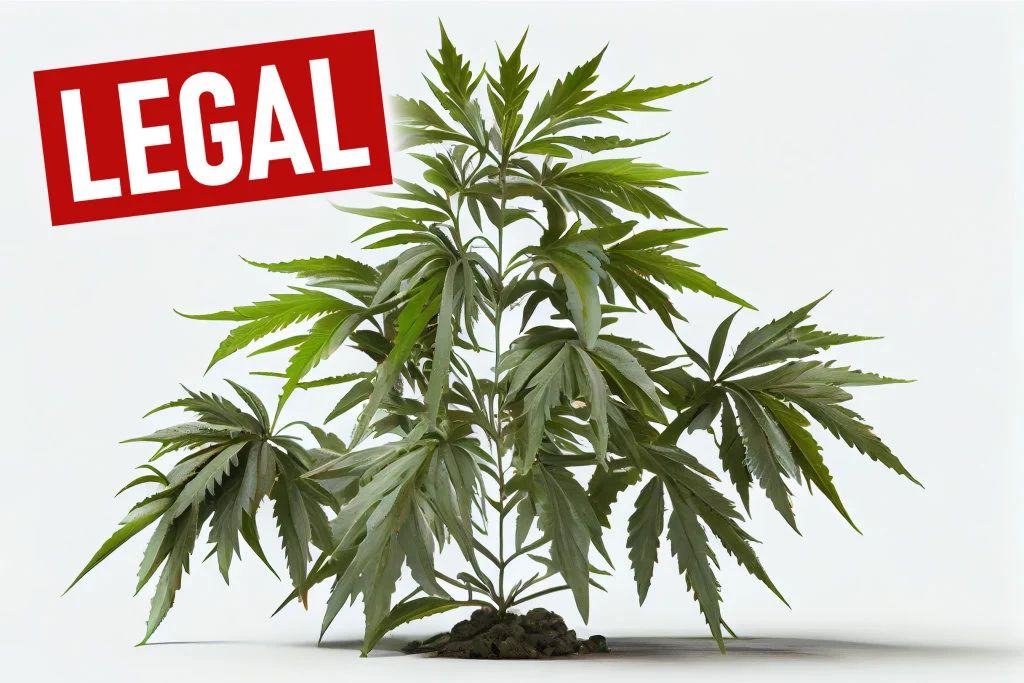April 20th, or 4/20, has long been celebrated as an unofficial counterculture holiday for cannabis enthusiasts around the world. The origins of this date being associated with marijuana culture can be traced back to the 1970s in California, where a group of high school students used the term “4:20” as a codeword to meet and smoke weed.
Over time, the date gained popularity and became an international celebration of cannabis culture.
This year’s 4/20 holds a special significance for Germany, as the country has officially legalized recreational cannabis use on this symbolic day. After years of debate and legislative efforts, Germany has taken a historic step towards a more progressive and pragmatic approach to drug policy.

The Main Provisions of German Cannabis Legalization
On April 1st, 2024, a new law came into effect in Germany, allowing adults aged 18 and above to possess up to 25 grams of cannabis in public and up to 50 grams at home. Additionally, individuals are permitted to cultivate up to three cannabis plants for personal use.
Starting from July 1st, 2024, non-profit “cannabis clubs” with a maximum of 500 members will be allowed to collectively cultivate and distribute cannabis among their members. However, commercial sales in licensed stores are not yet permitted, leaving these clubs as the only legal avenue for obtaining cannabis for the time being.
The Scope of Legalization
Possession and Cultivation Limits
The new law sets clear limits on the amount of cannabis that can be possessed and cultivated for personal use. Adults aged 18 and above are allowed to carry up to 25 grams of cannabis in public spaces and store up to 50 grams at home. Additionally, they can grow up to three cannabis plants for personal consumption.
Cannabis Clubs
From July 1st, 2024, non-profit “cannabis clubs” with a maximum membership of 500 individuals will be permitted to collectively cultivate and distribute cannabis among their members. These clubs will serve as the primary legal avenue for obtaining cannabis until commercial sales are eventually allowed.
Restrictions and Limitations
While the legalization of cannabis for personal use is a significant step forward, the new law also imposes several restrictions and limitations:
- Cannabis use will remain prohibited in certain areas, such as schools, playgrounds, and public sports facilities.
- Consumption will not be allowed during specific hours (7 AM to 8 PM) or in pedestrian zones.
- Commercial sales in licensed stores are not yet permitted, leaving cannabis clubs as the only legal source for the time being.
The Debate Surrounding Cannabis Legalization

The decision to legalize cannabis in Germany has been met with both support and criticism from various stakeholders.
Proponents’ Arguments
Supporters of cannabis legalization, including many politicians, health experts, and consumers, have long advocated for the decriminalization of small-scale possession and consumption. Their primary arguments include:
- Reducing the presence of illegal drug trafficking and the black market.
- Protecting consumers from contaminated or adulterated cannabis products.
- Cutting off revenue streams for organized crime groups involved in the drug trade.
- Alleviating the burden on law enforcement and the judicial system.
Opposition and Concerns
On the other hand, opponents of the new law, primarily from conservative political parties and some medical professionals, have raised concerns about the potential negative impacts of cannabis legalization:
- Increased risk of addiction and related health problems, particularly among young adults.
- Potential negative effects on traffic safety and public order.
- Exacerbation of social instability and other societal issues.
Some medical experts have also warned against downplaying the potential harms of cannabis use, especially for individuals under the age of 25, as their brains are still developing.
The Objectives of Cannabis Legalization
The German government has outlined several key objectives behind the decision to legalize cannabis:
- Combating the Illegal Drug Trade: By providing a legal and regulated framework for cannabis consumption, the government aims to undermine the black market and disrupt the revenue streams of organized crime groups involved in drug trafficking.
- Protecting Consumer Safety: Through legalization and regulation, the government can ensure that cannabis products meet quality standards and are free from contamination or adulteration, safeguarding the health and safety of consumers.
- Reducing the Burden on Law Enforcement: The decriminalization of personal cannabis possession and use is expected to alleviate the workload and resources dedicated by law enforcement agencies and the judicial system to prosecuting minor cannabis-related offenses.
- Generating Tax Revenue: While the details are still being finalized, the legalization of cannabis is expected to generate significant tax revenue for the government, which can be reinvested in public services and harm reduction programs.
The Impact of Cannabis Legalization
The legalization of cannabis in Germany is expected to have far-reaching implications, both positive and negative, across various aspects of society.
Potential Positive Impacts
- Reduction in Criminal Activity: By removing the illegal market for cannabis, the legalization could potentially lead to a decrease in drug-related crimes and the associated societal costs.
- Increased Tax Revenue: The legal cannabis industry is expected to generate substantial tax revenue for the government, which can be reinvested in public services and harm reduction programs.
- Job Creation: The establishment of a legal cannabis industry could create new employment opportunities in various sectors, including cultivation, processing, distribution, and retail.
- Promotion of Research: Legalization could facilitate more extensive research into the potential medical and therapeutic applications of cannabis, leading to advancements in healthcare.
- Reduced Enforcement Burden: Law enforcement agencies and the judicial system could reallocate resources previously dedicated to prosecuting minor cannabis-related offenses to more pressing issues.
Potential Negative Impacts
- Increased Youth Consumption: Critics argue that legalization could lead to an increase in cannabis use among young adults and adolescents, potentially causing long-term health and developmental issues.
- Addiction and Health Concerns: While cannabis is generally considered less harmful than other substances, there are still concerns about the potential for addiction and adverse health effects, particularly with long-term or heavy use.
- Impaired Driving and Public Safety: Legalization could potentially lead to an increase in impaired driving incidents and other public safety concerns if not properly regulated and enforced.
- Social Instability: Some opponents argue that widespread cannabis use could contribute to social instability, decreased productivity, and other societal issues.
The Future of Cannabis Legalization in Germany
Germany’s decision to legalize cannabis is a significant milestone, but it is only the beginning of a long and complex journey. The implementation and regulation of the new law will undoubtedly face challenges and require ongoing adjustments.
As the first major European nation to legalize recreational cannabis use, Germany’s experience will be closely watched by other countries considering similar policy changes. The success or failure of Germany’s approach could influence the direction of cannabis legalization efforts worldwide.
It is crucial for the German government to establish a robust regulatory framework that ensures product quality, consumer safety, and responsible use. Additionally, ongoing research and monitoring of the social, economic, and health impacts of legalization will be essential to inform future policy decisions.
Conclusion
The legalization of cannabis in Germany on the symbolic 4/20 date marks a new chapter in the country’s approach to drug policy. While the decision has been met with both support and criticism, it represents a significant shift towards a more pragmatic and evidence-based approach to addressing the complex issues surrounding cannabis use.
As Germany navigates this uncharted territory, it will be essential to strike a balance between promoting individual freedoms, protecting public health and safety, and addressing the societal impacts of cannabis legalization. The success of this endeavor will not only shape the future of cannabis policy in Germany but also serve as a valuable case study for other nations grappling with similar challenges.
Ultimately, the legalization of cannabis in Germany is a bold step towards a more progressive and rational approach to drug policy, one that prioritizes harm reduction, consumer protection, and the dismantling of the illegal drug trade. As the world watches, Germany’s experience will undoubtedly contribute to the ongoing global dialogue on this complex and multifaceted issue.

